The Care of Life
The Care of Life
Transdisciplinary Perspectives in
Bioethics and Biopolitics
Edited by Miguel de Beistegui, Giuseppe Bianco and Marjorie Gracieuse

London New York
Published by Rowman & Littlefield International, Ltd.
Unit A, Whitacre Mews, 26-34 Stannary Street, London SE11 4AB
www.rowmaninternational.com
Rowman & Littlefield International, Ltd. is an affiliate of Rowman & Littlefield
4501 Forbes Boulevard, Suite 200, Lanham, Maryland 20706, USA
With additional offices in Boulder, New York, Toronto (Canada), and Plymouth (UK)
www.rowman.com
Copyright 2015 by Miguel de Beistegui, Giuseppe Bianco, Marjorie Gracieuse and contributors
All rights reserved. No part of this book may be reproduced in any form or by any electronic or mechanical means, including information storage and retrieval systems, without written permission from the publisher, except by a reviewer who may quote passages in a review.
British Library Cataloguing in Publication Information Available
A catalogue record for this book is available from the British Library
ISBN: HB 978-1-78348-037-1
ISBN: PB 978-1-78348-038-8
Library of Congress Cataloging-in-Publication Data
The care of life : transdisciplinary perspectives in bioethics and biopolitics / [edited by] Miguel de Beistegui, Giuseppe Bianco and Marjorie Gracieuse.
pages cm
Includes index.
ISBN 978-1-78348-037-1 (cloth : alk. paper) ISBN 978-1-78348-038-8 (pbk. : alk. paper) ISBN 978-1-78348-039-5 (electronic)
1. BioethicsPhilosophy. 2. BiopoliticsPhilosophy. 3. Interdisciplinary approach to knowledge. I. Beistegui, Miguel de, 1966 editor. II. Bianco, Giuseppe, editor. III. Gracieuse, Marjorie, editor.
QH332.C368 2015
174.2dc23
2014028213
 TM The paper used in this publication meets the minimum requirements of American National Standard for Information Sciences Permanence of Paper for Printed Library Materials, ANSI/NISO Z39.48-1992.
TM The paper used in this publication meets the minimum requirements of American National Standard for Information Sciences Permanence of Paper for Printed Library Materials, ANSI/NISO Z39.48-1992.
Printed in the United States of America
Acknowledgements
We would like to thank the Leverhulme Trust for its generous support. Most of the chapters gathered in this volume were originally presented at one of the three workshops organized by the Research Project in Bioethics and Biopolitics at the University of Warwick between 2011 and 2013, which was funded by the Leverhulme Trust. Were also very grateful to our editor, Sarah Campbell, for her trust, patience and good humour in the last few months.
Introduction
Giuseppe Bianco, with Miguel de Beistegui
Life: Who Cares?
How can we account for the fact that, in the last twenty years at least, life has become a privileged category with which the humanities in general, and philosophy in particular, have approached virtually all epistemological, political, ethical and even ontological problems? And what kind of history does the concept of life have, both inside and outside the humanities? Our goal, in this brief introduction, is to mention some of the reasons why, according to us, we seem to have reached a moment in history where every distinction and opposition is made no longer in relation to life, but within it, and where life is a problem inextricably theoretical and practical, ontological and political. These reasons are, no doubt, contingent, and our aim is not to reconstruct a grand narrative regarding the meaning and direction of that phenomenon. Rather, we wish to identify some of the signs that allow us to recognize it as a key development, and open the critical space within which it is discussed in the various chapters of this volume.
Birth and Death of a Concept
In The Logic of Life (1970), the French biologist and historian of the life sciences Francois Jacob declared that life was no longer interrogated in the laboratories.
Monod and Jacob further claim that, as this question progressively faded away, it was no longer possible to consider the various versions of vitalism as viable orientations in biology: according to him, they represented proof of the effectiveness of the sciences of information applied to both human and biological phenomena. Throughout the 1960s and, especially, 1970s, the paradigm of languageevident in the use and abuse of notions such as message, code, system and structuredominated the field of the humanities. As a counterpart of this enthusiasm, little use was made of categories such as agency, individuality, subjectivity and purposiveness.
Roughly at the same timein 1966, to be preciseMichel Foucault published a book that sketched an archeology of the human sciences. dated from the beginning of the nineteenth century. In Aristotle, life is to be found everywhere and, as a result, doesnt have a clear specificity. The situation is quite different in Descartes: given the fact that his mechanism reduces everything to extension and matter, there is no room whatever for life. The concept of life as we understand it today emerged through a series of discourses, experiments and institutions, which we need to say a few words about.
If, after the discovery of DNA, and in the eyes of positivist biologists such as Jacob, Monod and Lwoff, the concept of life was no longer necessary, Foucaults claim is that it did not yet exist in the eighteenth century. The life of life itself unfolds between that no longer, which marks the death of a concept, In Foucaults visionary evocation of a future disappearance of man at the very end of The Order of Things one can clearly hear the echo of Nietzsches prophecy about its overcoming. But, just as in Nietzsche, the prophecy concerning the overcoming of man is essentially ambiguous: the notion of life was not about to disappear entirely, but was destined to go through mutations, in the biological and medical fields as well as in the humanities.
The Forgetting of Life
The slow disappearance of the notion of life from the laboratories was mirrored within the humanities. Taken together, the emergence of the life sciences in the nineteenth century, the growing importance of the theory of evolution, which inflicted a second narcissistic wound to the human psyche, and the great influence of the metaphor of the organism,
To this epistemological climate, we should add the historical and political context of the 1930s and 1940s, which was largely dominated by the ideological use fascism made of the romantic philosophy that conceives of life as an obscure force It was as if, to protect the values of humanism, scientific progress and democracy, one needed to deprive life of any potentiality, agency or originality, and ensure that the human intellect, which was given an exceptional place within nature, be able to control and dominate life itself.
The situation in France was, in that respect, symptomatic. As part of the process of autonomization of the discipline, French sociology opposed social Darwinism and organicism, as well as the legacy of Spencers and Comtes social positivism; psychology emphasized the moment of humanization in the course of evolution and the peculiarity of human cognition; beginning in the 1930s, psychoanalysis and theorists such as Politzer and Lacan developed a critique of notions such as psychical energies and, more generally, Freuds metapsychology, with the aim of condemning their realism, vitalism and irrationalism. And in French philosophy, the critique of positivism was accompanied by a lack of interest in the factual development of biology, as shown in Lon Brunschvicgs and Emile Meyersons epistemologies.
Next page
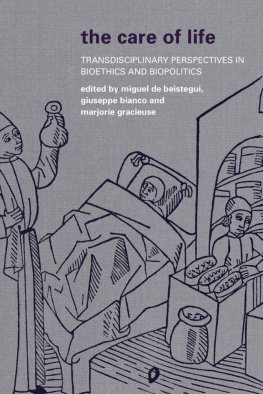

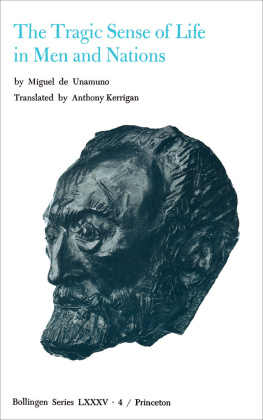
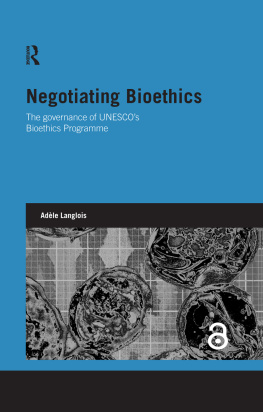

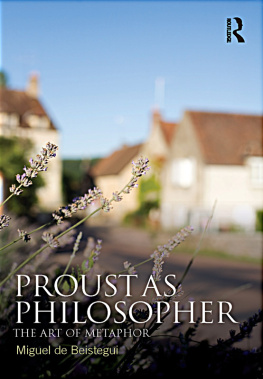
![Beistegui Miguel de - Heidegger [and] the political: Dystopias](/uploads/posts/book/181018/thumbs/beistegui-miguel-de-heidegger-and-the.jpg)
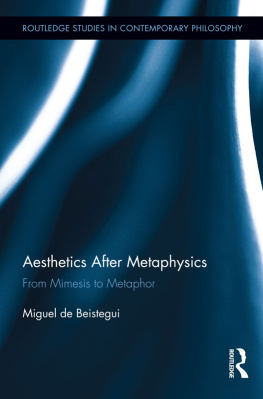
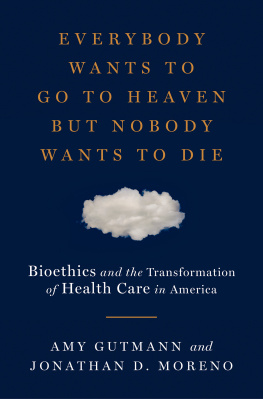
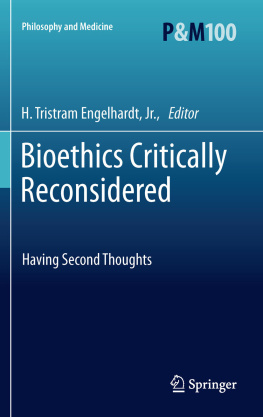


 TM The paper used in this publication meets the minimum requirements of American National Standard for Information Sciences Permanence of Paper for Printed Library Materials, ANSI/NISO Z39.48-1992.
TM The paper used in this publication meets the minimum requirements of American National Standard for Information Sciences Permanence of Paper for Printed Library Materials, ANSI/NISO Z39.48-1992.